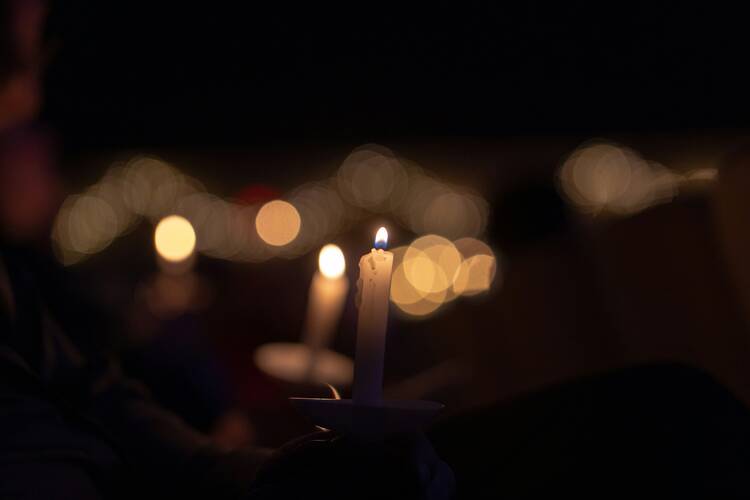A Reflection for Thursday of the Twenty-third Week in Ordinary Time
Find today’s readings here.
Today's Gospel introduces two of the most pernicious misconceptions about Christianity with which people struggle today: The idea that Christians are supposed to be doormats, and the idea that we white-knuckle our way through good deeds because we're earning some really sweet payback.
I understand why people think these things are true.
Here's the entire reading:
Jesus said to his disciples:
“To you who hear I say, love your enemies,
do good to those who hate you, bless those who curse you,
pray for those who mistreat you.
To the person who strikes you on one cheek,
offer the other one as well,
and from the person who takes your cloak,
do not withhold even your tunic.
Give to everyone who asks of you,
and from the one who takes what is yours do not demand it back.
Do to others as you would have them do to you.
For if you love those who love you,
what credit is that to you?
Even sinners love those who love them.
And if you do good to those who do good to you,
what credit is that to you?
Even sinners do the same.
If you lend money to those from whom you expect repayment,
what credit is that to you?
Even sinners lend to sinners,
and get back the same amount.
But rather, love your enemies and do good to them,
and lend expecting nothing back;
then your reward will be great
and you will be children of the Most High,
for he himself is kind to the ungrateful and the wicked.
Be merciful, just as also your Father is merciful.
“Stop judging and you will not be judged.
Stop condemning and you will not be condemned.
Forgive and you will be forgiven.
Give and gifts will be given to you;
a good measure, packed together, shaken down, and overflowing,
will be poured into your lap.
For the measure with which you measure
will in return be measured out to you.”
It really does sound like Jesus is saying, "Let people do whatever they want to you. Just take it, and after you die, the tables will be turned."
This is what it sounds like, if you read the passage in isolation, rather than in context.
Let's be clear: Reading it in context is not some kind of technicality, or a rhetorical trick to make your point. It's the only intellectually honest way to read it, and reading the Gospel honestly has very high stakes. So what is the context?
The textual context is that Jesus has just infuriated the Pharisees by breaking some rules. He then chooses the twelve apostles, and delivers the Sermon on the Mount, including the Beatitudes.
But in a larger sense, the context is Jesus himself.
None of what he says makes sense or is worth following unless you know Jesus himself, what he has done, and what he continues to do. Any other person in the world who tells you to turn the other cheek really would be advocating for passive, pathetic victimhood. Any other person who tells you to do good so that you get mega-returns on your investments would be cynical, or a charlatan.
But when Jesus says it, with all the force of why he came and what he is about to do, it becomes anything but passive, anything but pathetic, anything but calculating. What Jesus commands us to do is to be like him, so that he can transform us.
Jesus changed things. He turned and continues to turn suffering into an act of love, if you do it in his name. The things that he describes—turning the other cheek, offering your second cloak, waiting for a reward—these would all be petty and foolish and meaningless, without love. But when we do them in Jesus' name, they become the only way to comprehend a love that is larger than any of the things in this world, including rules, including possessions, including bargains and sufferings.
Now that Jesus has arrived, the only way to live is to live with eyes on Jesus. Do what he does, trust only him, do everything in his name and expect to be surprised by his life-changing generosity.








